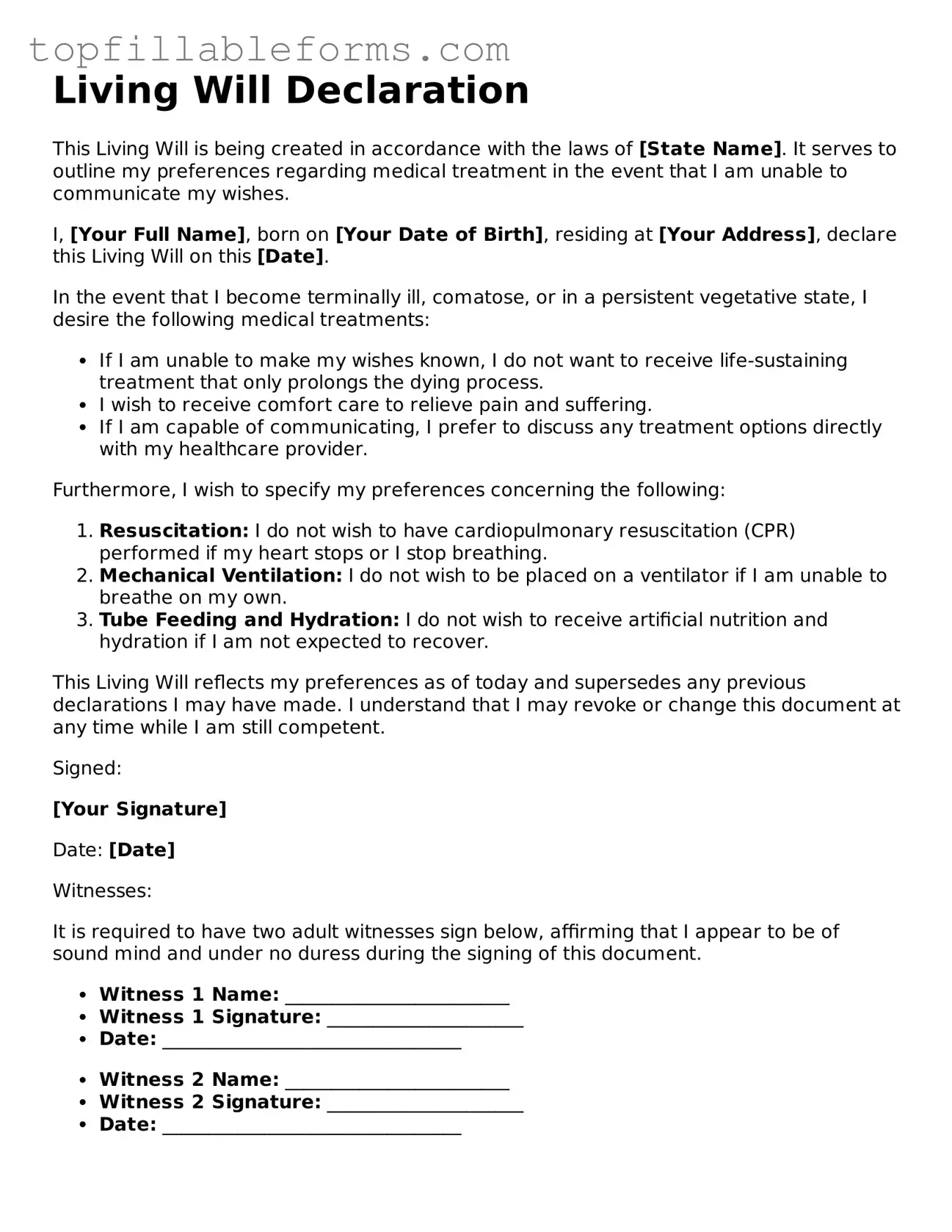Free Living Will Form
A Living Will is a legal document that outlines an individual's preferences for medical treatment in the event they become unable to communicate their wishes. This form serves as a guide for healthcare providers and loved ones, ensuring that a person's choices regarding life-sustaining measures are respected. Understanding the importance of a Living Will can help individuals take control of their healthcare decisions and provide peace of mind for themselves and their families.
Open Living Will Editor Here

Free Living Will Form
Open Living Will Editor Here
Finish the form now and be done
Finish your Living Will online by editing, saving, and downloading fast.
Open Living Will Editor Here
or
▼ PDF File
